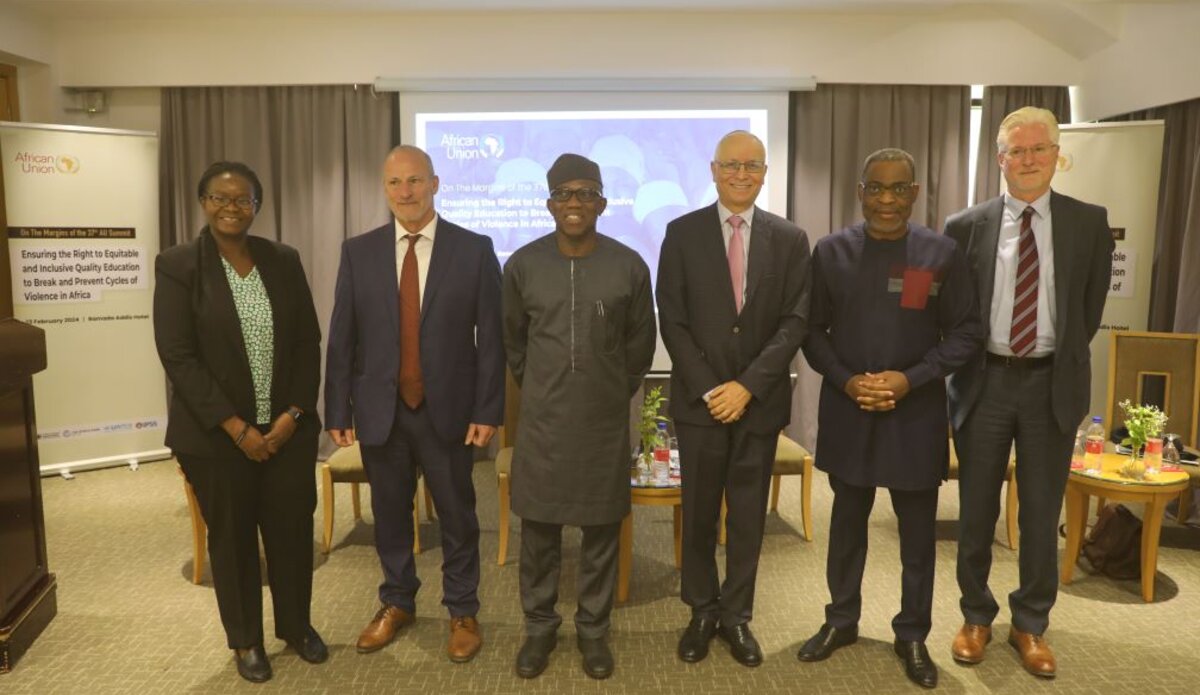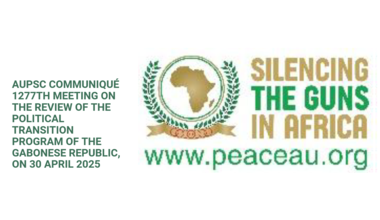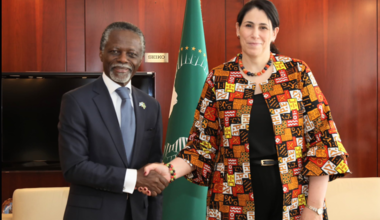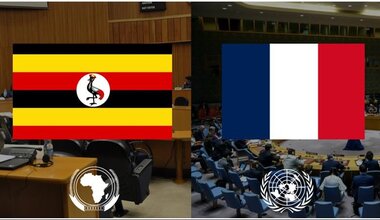UNOAU supports the AU side event: "Ensuring the right to equitable and inclusive quality education to break and prevent cycles of violence in Africa"
On 13 February 2024 the African Union (AU) organized an event on the margins of the 37th Assembly of the African Union Heads of State and Government. The event, which was organized by the AU in collaboration with UN Office of the High Commissioner for Human Rights (OHCHR), UN Institute for Training and Research, the World Bank Group, Institute for Peace and Security Studies and UNOAU, which focused on “Ensuring the right to equitable and inclusive quality education to break and prevent cycles of violence in Africa, by harnessing the development and peace potential of the people to achieve the Africa we want.”
With education being the theme of the year for 2024, the meeting provided an opportunity to reflect upon the relationship between education and conflict prevention. The meeting was also an also opportunity to redouble commitment to ensuring universal and equal access to inclusive and equitable quality of education and learning, to help interrupt and prevent cycles of violent conflict in Africa and contribute to achieving the Sustainable Development Goals (SDGs), Agenda 2063, and the AU Silencing the Guns initiative.
The event enhanced awareness and understanding about the importance of the right to education and its linkages to strengthening resilience to help prevent and mitigate violent conflict. In addition, it provided an opportunity to discuss how to strengthen the right to education, using a human rights based approach. The meeting was opened by keynote remarks by H.E. Ambassador Bankole Adeoye, AU Commissioner for Political Affairs, Peace and Security, and H.E. Professor Mohammed Belhocine, AU Commissioner for Education, Science, Technology & Innovation. In his remarks, Mr. Gerald Mitchell, Deputy Head of UNOAU and Director of Political Affairs, underscored the importance of the peace, security, and development nexus, recalling that Secretary-General Guterres’ “A New Agenda for Peace” highlights that conflict prevention, sustainable peace, and development are interconnected and vital to address violence drivers.
Mr. Mitchell noted that education is crucial in Disarmament, Demobilization, and Reintegration (DDR) efforts, countering the recruitment of youth into conflict. A comprehensive approach is vital for lasting peace, further recognizing that a human rights approach strengthens resilience and promotes peace. Other participants at the meeting, including the UN Educational, Scientific, and Cultural Organization (UNESCO), civil society organizations, as well as an African Youth Ambassador for Peace shared their thoughts and experiences during the different sessions. The event emphasized the importance of partnerships and working collaboratively towards sustainable peace in Africa, and preventing conflict and violence by focusing on a joint approach towards peace, security and development.
 UN
UN





